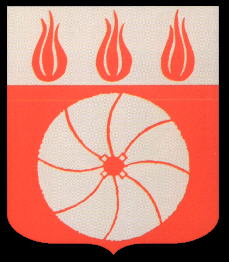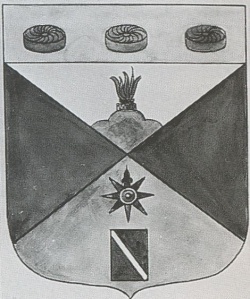Höör: Difference between revisions
Knorrepoes (talk | contribs) m (Text replacement - "{|width="100%" style="color:black; background-color:#ffffcc;" |width="15%"|50 px|left |width="70%" align="center" |'''Heraldry of the World<br>Civic heraldry of Sweden > <b>Sveriges Kommunvapen |width="15%"|50 px|right |}" to "{{sweden}}") |
Knorrepoes (talk | contribs) m (Text replacement - "{{se}}↵↵'''" to "'''") |
||
| (15 intermediate revisions by the same user not shown) | |||
| Line 1: | Line 1: | ||
'''HÖÖR''' | '''HÖÖR''' | ||
Province (Landskap): [[Skåne]] <br> | Province (Landskap): [[Skåne]] <br> | ||
County (Län): [[Skåne län]] (until 1997 [[Malmöhus län]])<br> | County (Län): [[Skåne län]] (until 1997 [[Malmöhus län]])<br> | ||
Additions : 1969 Norra Frosta (1952 Hallaröd, Höör Landskommun, Norra Rörum, Munkarp), Snogeröds (partly, 1952 Bosjökloster, Gudmuntorp, Hurva), Sösdala (partly; 1952 Brönnestad, Häglinge, Norra Mellby, Tjörnarp) | Additions: 1969 Norra Frosta (1952 Hallaröd, Höör Landskommun, Norra Rörum, Munkarp), Snogeröds (partly, 1952 Bosjökloster, Gudmuntorp, Hurva), Sösdala (partly; 1952 Brönnestad, Häglinge, Norra Mellby, Tjörnarp) | ||
[[File:hoor.jpg|center]] | [[File:hoor.jpg|center|Arms (crest) of {{PAGENAME}}]] | ||
= | {| class="wikitable" | ||
I rött fält en kvarnsten av silver och däröver en ginstam av silver belagd med tre röda lågor | |+Official blazon | ||
|- | |||
|'''Swedish''' | |||
| | |||
I rött fält en kvarnsten av silver och däröver en ginstam av silver belagd med tre röda lågor|- | |||
|'''English''' | |||
| blazon wanted | |||
|} | |||
===Origin/meaning=== | |||
The arms were granted in 1949 and confirmed in 1974 and show three flames and a millstone. In former times millstones were made in the municipality, it being the main industry at the time. The flames are a canting symbol, the name being derived from harg, or place of offerings. | The arms were granted in 1949 and confirmed in 1974 and show three flames and a millstone. In former times millstones were made in the municipality, it being the main industry at the time. The flames are a canting symbol, the name being derived from harg, or place of offerings. | ||
In 1949 a proposal for arms was submitted to the Institute of Heraldry. The proposal showed in a chief three millstones. The main field was divided with a St. Andrews cross, red and silver. The upper silver part showed a hill with an altar with fire. The lower silver quarter showed a military cross and a rectangle with a bend. The meaning of the latter two I don't know. | In 1949 a proposal for arms was submitted to the Institute of Heraldry. The proposal showed in a chief three millstones. The main field was divided with a St. Andrews cross, red and silver. The upper silver part showed a hill with an altar with fire. The lower silver quarter showed a military cross and a rectangle with a bend. The meaning of the latter two I don't know. | ||
[[File:hoor1949.jpg|center|250 px|Arms (crest) of {{PAGENAME}}]] | |||
{{media}} | {{media}} | ||
[[Literature]] : Nevéus and De Waern, 1992. | '''[[Civic Heraldry Literature - Sweden|Literature]]''': Nevéus and De Waern, 1992. | ||
[[Category:Swedish Municipalities H]] | [[Category:Swedish Municipalities H]] | ||
[[Category:Skåne]] | [[Category:Skåne]] | ||
Latest revision as of 12:19, 11 February 2024
HÖÖR
Province (Landskap): Skåne
County (Län): Skåne län (until 1997 Malmöhus län)
Additions: 1969 Norra Frosta (1952 Hallaröd, Höör Landskommun, Norra Rörum, Munkarp), Snogeröds (partly, 1952 Bosjökloster, Gudmuntorp, Hurva), Sösdala (partly; 1952 Brönnestad, Häglinge, Norra Mellby, Tjörnarp)
| Swedish |
I rött fält en kvarnsten av silver och däröver en ginstam av silver belagd med tre röda lågor|- |
English | blazon wanted |
Origin/meaning
The arms were granted in 1949 and confirmed in 1974 and show three flames and a millstone. In former times millstones were made in the municipality, it being the main industry at the time. The flames are a canting symbol, the name being derived from harg, or place of offerings.
In 1949 a proposal for arms was submitted to the Institute of Heraldry. The proposal showed in a chief three millstones. The main field was divided with a St. Andrews cross, red and silver. The upper silver part showed a hill with an altar with fire. The lower silver quarter showed a military cross and a rectangle with a bend. The meaning of the latter two I don't know.
Contact and Support
Partners:
Your logo here ?
Contact us
© since 1995, Heraldry of the World, Ralf Hartemink 
Index of the site
Literature: Nevéus and De Waern, 1992.











